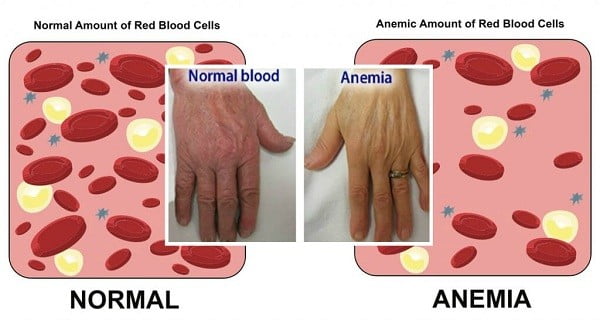What Vitamins Cause Anemia
Anemia is a common blood disorder that affects millions of people worldwide, especially in Asia. It occurs when your body doesn't have enough red blood cells or hemoglobin, causing fatigue, weakness, and other symptoms. In many cases, anemia is caused by a deficiency in vitamins or minerals that are crucial for producing healthy red blood cells.
Vitamin Deficiency Anemia
One of the most common causes of anemia is a deficiency in vitamin B12 or folic acid. These vitamins are essential for the production of red blood cells, and without them, your body can't make enough to keep up with demand. People who follow a vegan or vegetarian diet are at higher risk of developing vitamin B12 deficiency anemia, as this vitamin is found primarily in animal products like meat, dairy, and eggs.
Folic acid deficiency anemia is also common, especially in pregnant women. Folic acid is important in preventing birth defects, but it's also important for red blood cell production. Acutely ill patients who are not able to absorb nutrients adequately are also at risk of developing folic acid deficiency anemia.
Some common symptoms of vitamin deficiency anemia include fatigue, weakness, pale skin, shortness of breath, and dizziness. In severe cases, it can cause heart palpitations and chest pain. Treatment for vitamin deficiency anemia typically involves supplements or changes to your diet.
Iron Deficiency Anemia
Another type of anemia that is common in Asia, especially in women, is iron deficiency anemia. Iron is an essential mineral that is needed for the production of hemoglobin, which is the protein in red blood cells that carries oxygen throughout your body. Without enough iron, your body can't make enough healthy red blood cells, and you can develop anemia.
Iron deficiency anemia often develops slowly over time and is caused by a lack of iron in your diet. Some people are more at risk of developing iron deficiency anemia, including women who are pregnant, women who have heavy menstrual periods, people with gastrointestinal bleeding, and people who don't eat enough iron-rich foods like meat, poultry, fish and beans.
Common symptoms of iron deficiency anemia include fatigue, weakness, headache, dizziness, and shortness of breath. Other symptoms include pale skin, cold hands and feet, and brittle nails. Treatment for iron deficiency anemia may include iron supplements, changes in diet, or intravenous iron therapy.
Prevention and Treatment
If you suspect you may have anemia, it's important to see a doctor for a proper diagnosis and treatment. Depending on the type of anemia and its cause, treatment may include supplements, changes to your diet, or other medications. In some cases, more severe cases may require blood transfusions or other medical interventions.
Preventing anemia is essential, especially in high-risk populations. Eating a healthy, balanced diet that includes a variety of nutrient-rich foods is one of the best ways to prevent anemia. Foods that are rich in vitamins B12 and folate include beef liver, clams, fortified cereals, and leafy greens. Foods that are rich in iron include red meat, poultry, seafood, beans, and leafy green vegetables.
In conclusion, anemia is a common condition that affects millions of people in Asia and around the world. It can be caused by various factors, including nutrient deficiencies and chronic diseases. If you suspect you may have anemia, don't ignore the symptoms and seek a doctor's advice. With proper treatment and prevention, you can manage this condition and reduce the impact it has on your daily life.
